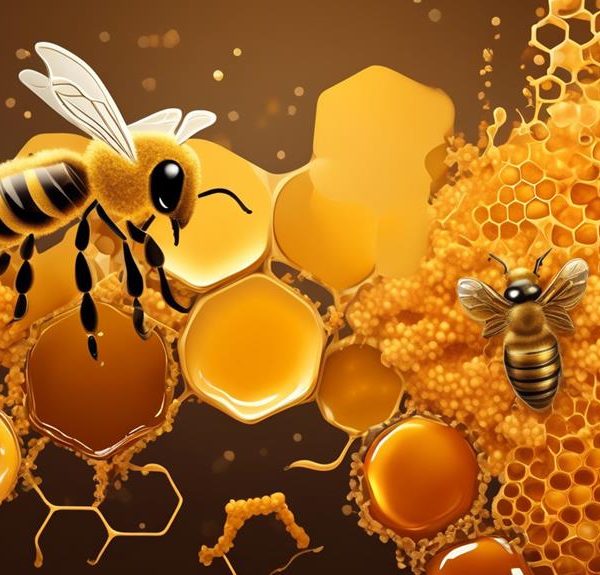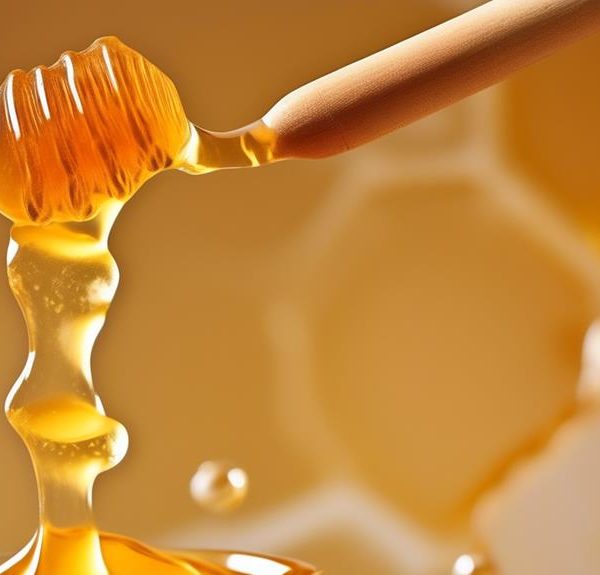Just when you thought honey couldn't get any healthier, discover the surprising presence of probiotics in this sweet treat.
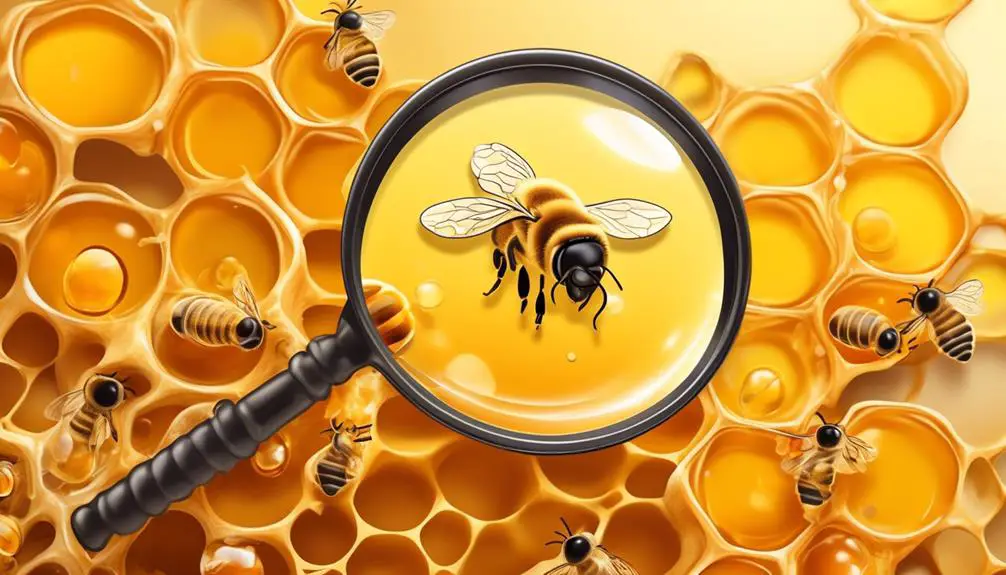
Are There Probiotics in Honey
Imagine you're a beekeeper who's just harvested a fresh batch of honey from your hives. You're familiar with the sweet, sticky substance's numerous benefits, from its antioxidant properties to its soothing effect on a sore throat.
But have you ever stopped to consider if there might be probiotics lurking in your honey? The notion might seem a bit far-fetched at first, but as you'll come to discover, there's a compelling body of scientific evidence that suggests otherwise.
Why not stick around to uncover this sweet secret?
Key Takeaways
- Honey contains probiotics, especially in raw and unprocessed forms.
- Probiotics in honey support a healthy gut microbiome by aiding digestion and immune system function.
- Scientific studies confirm the presence of probiotics in honey and their beneficial effects on gut health.
- Consuming honey can enhance gut microbial diversity, reduce inflammation, and lower disease risks.
Understanding Probiotics
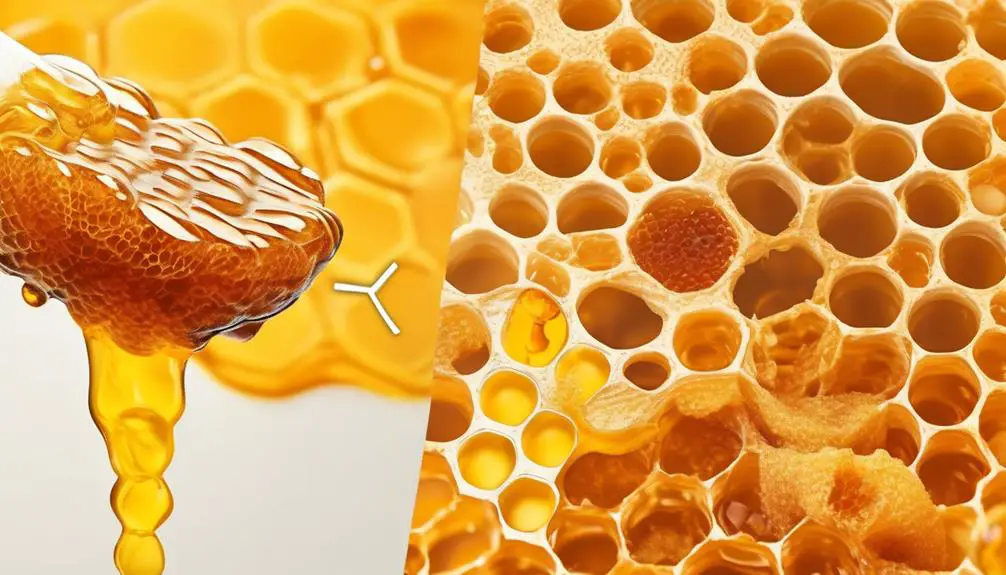
To truly appreciate the benefits of probiotics in honey, it's crucial to first understand what probiotics are and how they function in your body. Probiotics are live bacteria and yeasts that are good for your health, especially your digestive system. We usually think of bacteria as something harmful, but your body is full of bacteria, both good and bad. Probiotics are often called 'good' or 'friendly' bacteria because they help keep your gut healthy.
When you lose good bacteria in your body, for example after you take antibiotics, probiotics can help replace them. They can also help balance your 'good' and 'bad' bacteria to keep your body working the way it should.
Probiotics can be found in many different foods and supplements, including honey. They can be ingested in many ways, such as through food, beverages, and supplements. Once in your body, they settle into your gut and get to work. They can assist in digesting food, producing vitamins, and warding off harmful bacteria. It's important to understand that not all probiotics are the same. Different strains of the bacteria have different effects. For example, some work in the small intestine, while others do their job in the colon.
Nutritional Profile of Honey
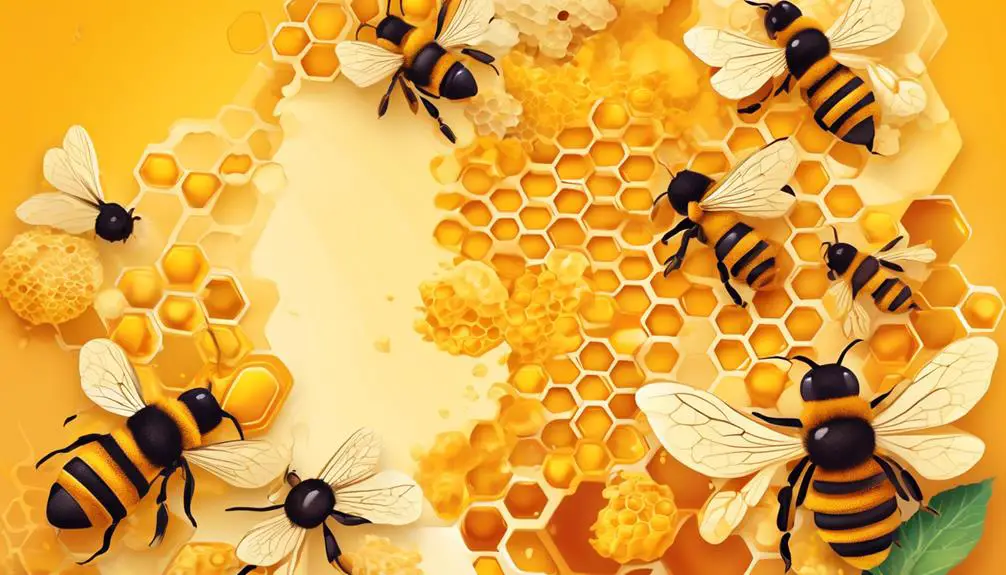
Now that you've grasped the concept of probiotics, let's explore the nutritional profile of honey, a natural substance that not only contains these beneficial bacteria, but also boasts a wealth of other essential nutrients.
Honey is rich in carbohydrates, specifically fructose and glucose, and provides about 64 calories per tablespoon. It also contains small amounts of vitamins and minerals, including iron, calcium, and vitamin C. However, the precise nutritional content can vary depending on the type of flowers the bees have visited.
Here's a handy table to illustrate the typical nutrient content in a tablespoon of honey:
Nutrient | Amount |
|---|---|
Calories | 64 |
Carbohydrates | 17g |
Protein | <1g |
But honey's nutritional benefits extend beyond these figures. It's a natural antioxidant, boasting compounds like flavonoids and phenolic acids that help fight inflammation and disease. Furthermore, it's a known prebiotic, meaning it feeds the good bacteria (probiotics) in your gut, promoting a healthy digestive system.
The Presence of Probiotics in Honey
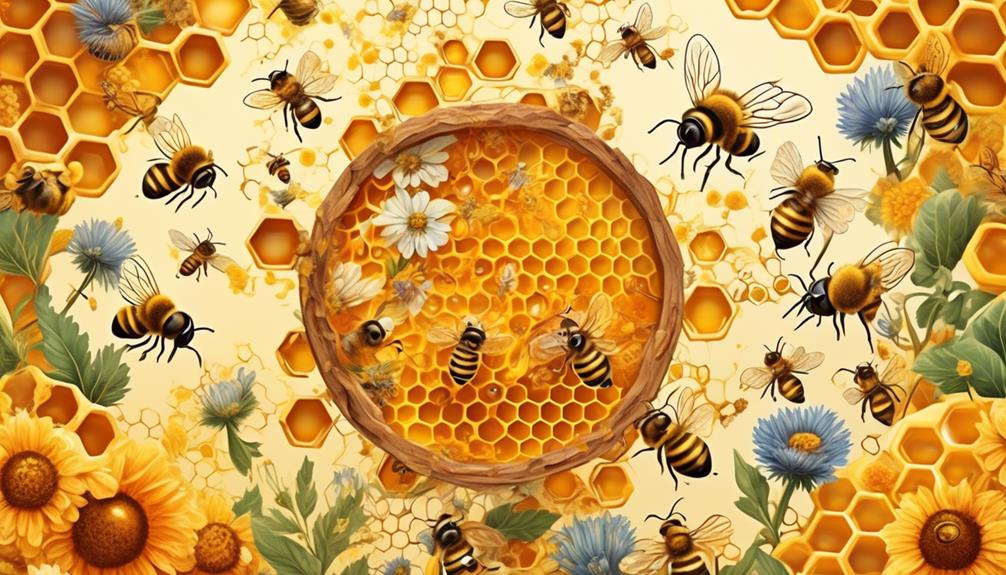
You might be surprised to learn that honey, beyond its myriad nutritional benefits, is a rich source of probiotics, the beneficial bacteria that play an essential role in our digestive health. These probiotics are naturally occurring and are often found in high-quality, raw, unprocessed honey.
Scientists have identified several species of lactic acid bacteria in honey, including Lactobacillus kunkeei, which is unique to the honey environment. These bacteria can survive the journey through the stomach and colonize in your gut, contributing to a healthy microbiome. They're not the same as the probiotics you'd find in yoghurt or fermented foods, but they still offer health benefits.
In fact, studies have shown that these probiotics can help your body to fight off harmful pathogens, support digestion, and strengthen the immune system. But remember, not all honey is created equal. The pasteurization process can kill off these beneficial bacteria, so it's always best to opt for raw, unpasteurized honey to reap the probiotic benefits.
Health Benefits of Honey's Probiotics
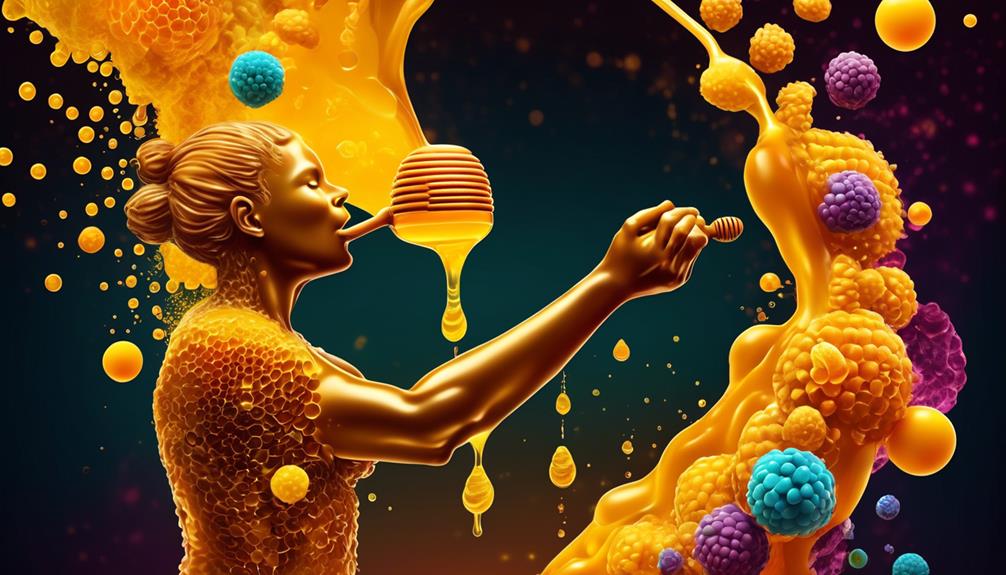
Building on the fact that raw honey is a rich source of probiotics, let's consider the specific health benefits these microorganisms provide. You see, probiotics in honey directly contribute to your overall health in several ways.
Health Benefit | Description | Probiotic involved |
|---|---|---|
Gut Health | Probiotics enhance the gut's microbial diversity, aiding digestion and nutrient absorption. | Lactobacillus kunkeei |
Immune Boost | They strengthen your immune system's response against pathogens. | Bifidobacteria |
Anti-Inflammatory | They reduce inflammation, lowering disease risks. | Leuconostoc spp. |
Mental Health | Some probiotics may improve mood and cognitive function. | Lactobacillus spp. |
When you ingest raw honey, these probiotics work in your gut, creating a healthy environment for beneficial bacteria to thrive. They help in breaking down food, enhancing nutrient absorption. They also interact with your immune cells, enhancing your body's defense against harmful pathogens. Moreover, some probiotics may have anti-inflammatory effects, reducing your risk of chronic diseases. Even your mental health can benefit, as some probiotics may influence mood and cognitive function. So, by consuming honey, you're not just enjoying its sweet taste, you're also reaping the health benefits of its probiotics.
Scientific Studies on Honey and Probiotics
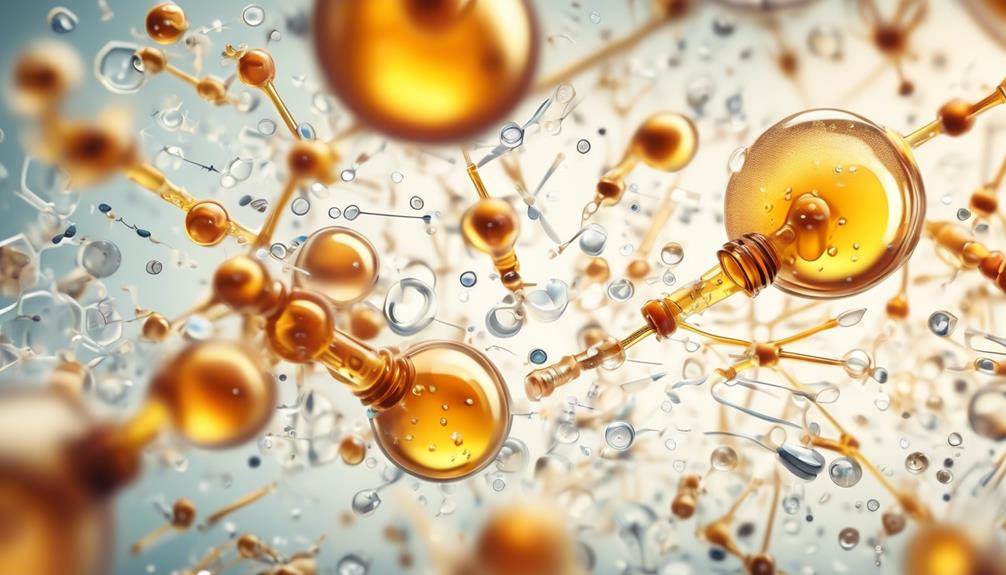
While it's clear that honey's probiotics offer a host of health benefits, several scientific studies have been conducted to further explore and confirm these effects. You might find it interesting that a study published in the Journal of Apicultural Research found that honey, particularly raw honey, can contain up to 6.5 million 'good' bacteria and yeast cells per gram. These probiotics, including Lactobacillus kunkeei, are beneficial for gut health.
Another study in the Journal of Functional Foods found that honey fermented with Lactobacillus rhamnosus could enhance the probiotic potency of honey. This fermented honey exhibited higher antioxidant activity and could potentially be used as a functional food.
Moreover, a study in the Journal of Agricultural and Food Chemistry found that honey has a prebiotic effect. Prebiotics are different from probiotics—they're a type of dietary fiber that feed the friendly bacteria in your gut. The study found that honey can stimulate the growth and activity of bifidobacteria, a type of probiotic bacteria.
These studies demonstrate that honey's probiotic and prebiotic properties have a strong scientific backing. So, incorporating honey into your diet can help nourish your gut microbiota.
Conclusion
In conclusion, honey indeed houses probiotics. This natural sweetener isn't just packed with nutrients, but also beneficial bacteria that support gut health. Various studies have confirmed honey's probiotic content, elucidating its role in health enhancement.
So, while honey may be sweet, it's also a powerhouse of probiotics, affirming its status as a natural superfood. Remember to buy raw, unprocessed honey to ensure you're getting those beneficial probiotics.

